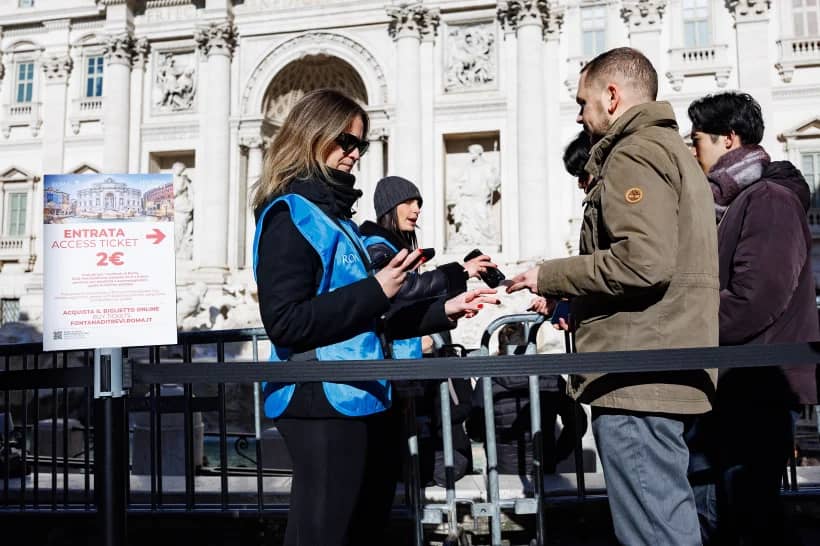ROME – As the Catholic Church in Italy still reels from several fresh scandals involving clergy, the country’s bishops on Thursday will be hold the first-ever Day of Prayer and Awareness for victims and survivors of sexual abuse.
“We cannot forget the suffering experienced by minors and vulnerable people due to the abuses of power, conscience, and sexuality committed by a considerable number of clerics and consecrated persons,” said Bishop Lorenzo Ghizzoni of Ravenna-Cervia in the introduction for one of the formal prayers prepared for Thursday.
President of the Italian church’s National Service for the Protection of Minors, Ghizzoni said the members of the Church are continually challenged “to take on the pain of our brothers wounded in flesh and spirit: for too long the cry of victims has been a cry that the Church has not been able to sufficiently hear.”
Set to coincide with the Nov. 18 European Day for the Protection of Minors Against Sexual Exploitation and Abuse, the Italian Church’s day of prayer is being organized by Ghizzoni’s office.
To mark the day, the Italian Bishops Conference (CEI) has prepared various materials for dioceses and parish priests to use in whatever events they might hold, including leaflets, a formal prayer for the occasion, and an adaptable template for a prayer vigil should parishes or dioceses choose to hold one.
Other materials and prayers have also been provided by the Pontifical Commission from the Protection of Minors (PCPM).
The idea for national bishops’ conferences to hold a day of prayer for victims and survivors of clerical abuse was first suggested by the PCPM in 2016 with a formal proposal to the pope, who approved and asked bishops’ conferences to choose an appropriate date for the occasion.
In Italy, awareness of the problem of the sexual abuse of minors by clergy or religious is still growing, as the country has yet to face the massive public scandals that have erupted in the United States and in other European nations, such as Ireland and Poland.
However, the country has faced several recent scandals involving abuse by clergy, including one case that happened in the Archdiocese of Perugia, which is presided over by Cardinal Gualtiero Bassetti, president of CEI.
In August Father Vincenzo Esposito, the pastor of the San Feliciano parish in Perugia, Umbria, was arrested on charges of child pornography and child prostitution. A native of Sicily, he has overseen the parish since his appointment there in 2013.
Esposito was jailed on charges of making sexual advances to four minor boys through video chat applications WhatsApp and Facebook Messenger, and of sending money to the boys, who are under 18, in exchange for explicit images of themselves.
Specifically, Esposito was accused following a police investigation of asking for specific content from the boys, and then sending them money through a local tobacco shop near his home in San Feliciano. The mother of one boy, who is 17, has also been charged for assisting in sending the lewd images of her son.
Shortly after Esposito’s arrest, Bassetti visited the parish as a sign of support and solidarity. He assigned a new pastor with a history in youth ministry to the parish in September.
RELATED: Perugia parish rattled by child porn case gets new pastor
A statement from the European Parliament Think Tank for proposals on legislation noted that globally, “Child sexual exploitation and sexual abuse are among the worst forms of violence against children, and constitute serious crimes that know no borders.”
The continual increase in child sexual exploitation and abuse, which has been exacerbated by the COVID-19 pandemic, highlights “the importance of harmonized national legislation and international cooperation to prevent these offences, protect the victims and prosecute the perpetrators,” the statement said.
Observing the Day for the Protection of Minors Against Sexual Exploitation and Abuse, it said, “contributes to raising awareness on the need for prevention and protection of children.”
In his introduction for CEI’s Day of Prayer and Awareness for victims and survivors of abuse, Ghizzoni called the occasion an opportunity to be taken advantage of thanks to the assistance of various diocesan representatives, pastors, consecrated persons, educators, and pastoral bodies generally.
The whole community must be involved, Ghizzoni said, saying the day is an invitation for all Catholics to pray “to support new paths for the human and spiritual recovery of the victims and of the survivors, of anyone who has been serious wounded, inside or outside of the Church, and of the families and communities affected by the pain of their loved ones.”
It is also necessary to pray for all those “who have some educational responsibility in the family, in the parish, in other environments, so that they protect and respect in body and soul the youth and children entrusted to them and the most vulnerable,” he said.
“Prayer will also help us to mobilize ourselves to create safe environments around us, choosing and forming people who know how to respect little ones in all of our ecclesial activities,” he said.
Yet in addition to praying for victims and those who have responsibility over children, Ghizzoni stressed that those who committed the abuses, as well as “those who did not want to see it and did not intervene to handle ambiguous and risky situations,” must also be prayed for.
Follow Elise Ann Allen on Twitter: @eliseannallen











